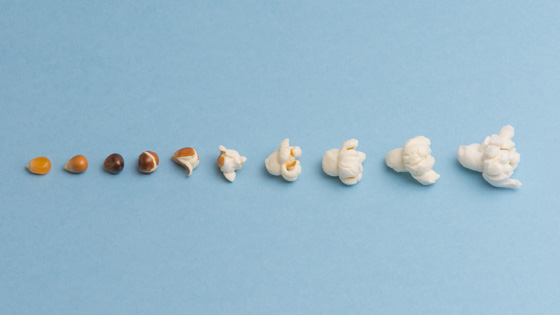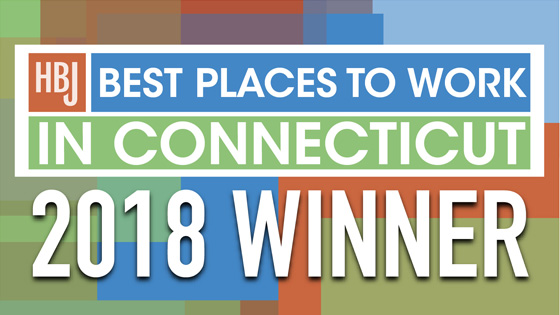How’s your client/creative relationship? A nonscientific quiz.
I just got back from three days in the desert at the One Club Creative Leaders Retreat in Scottsdale, AZ. Sitting down with my 56 pages of notes, I have been trying to organize the big, juicy takeaways. The theme of this year's retreat: The best way for creative teams to work with clients and how important that relationship is to the work. I was fortunate enough to talk with a number of leading creatives and clients during the retreat, and from those conversations, I have created this little quiz for clients to judge the strength of their creative/client interface. Let me know how well you score by emailing me: grants@mintz-hoke.com.

You just finished your first project with your new agency. How do you feel?
A. Ready for therapy. B. Ready for more.
Ad agency legend, Jay Chiat once famously quipped, “The day you produce your first work is the day you begin to lose that client.” The idea here is that once an agency gets its first project done, it's important to continually prove value to a client. Build trust. Grow. How you feel after the first project is a good indication of how well your agency gets that stuff.
When you talk about the work you do with your agency, what do you call it?
A. “Their work.” B. “Our work.”
In Arizona, one creative mentor stated that the job of the CD is to make everyone else feel like they own the work. The more ownership everyone feels, the greater the chances for creative success. Sounds reasonable to me.
Your ad agency brings you an idea that you never asked them to work on. How do you react?
A. Confused. B. Delighted.
One client I met at the retreat with a huge in-house agency capability and a number of top-shelf external roster shops said she truly appreciates when her external agency partners bring new thinking that she was not expecting — even if she hadn't budgeted for it. Her thinking: she could always find internal champions up the food chain and dollars for a good idea. And that’s what agencies are good at. Ideas.
How do you feel about the risk inherent in many creative ideas?
A. Risk is really not my thing. B. If you risk nothing, you change nothing.
Here’s an interesting conflict we creative folks deal with daily. Creative work is inherently risky. Great ideas involve taking great risks and combining things that have never been stuck together before. We swing and we miss all the time. We put it all out there. But part of agency life centers around following process. Which means avoiding risk, planning and codifying steps so that we can budget and schedule and meet the project’s needs effectively. The best agencies find a good balance and the best client understands that risk is part of making progress.
Which is more important to you?
A. Not failing. B. Succeeding in a big way.
NYT cultural and political commentator, David Brooks is famous for saying, “Corporate America fears failure more than it desires success.” Larger corporate clients can be pressured to make creative decisions based on the fear of failure rather than the desire to succeed. Start-ups, generally speaking, are all about the leap. After hearing this same sentiment from three different mentors at the retreat, it began to sink in for me.
What would you say your agency values more?
A. Fame. B. Trust.
Some ad agencies have a problem. They are addicted to the recognition and fame that comes with breaking important work and winning awards. One mentor at this year's retreat referred to this as the "Awards Industrial Complex." But too much focus on fame breeds client relationship glitches. I have always found that building trust points is far better for the work than amassing shiny trophies.
You’re in a meeting with your agency. What’s in front of them?
A. Laptops and phones. B. Pen and paper.
Technology is amazing. And frustrating when it draws one's attention away from a critical discussion. I've written in the past about the benefits of taking notes by hand. One mentor at the retreat reinforced my previous thoughts: “Put your phone and laptop away. And listen.”
What’s more important to you when it comes to your agency?
A. That they know a lot about my business. B. That they really care about my business.
Here’s an interesting sound bite I heard at this retreat. It sounds a little pat. But it's also 100% true: “Most clients don't care about what we know until they know that we care.” Showing an interest in the client's problem, their business, and their audience is job one. Brilliant creative insights and ideas follow.
You and your agency are preparing for a critical project. How many people will be on the team?
A. Six or more. B. Five or less.
One of the speakers at this year’s retreat, when talking about the size of teams, brought up the example of Lockheed Martin’s Skunk Works, a project team that was set up to solve a particularly thorny problem during the latter part of World War II. And they had some very interesting ideas about how critical teams should operate. One of those ideas: "Restrict viciously" the number of people on a project. This keeps focus up and project time and costs down. I have always favored small agency and client teams for this reason.
Checking your answers. How did you do?
A mix of A’s and B’s.
You and your agency are doing a few things right and have a few things to work on. Sounds like a healthy relationship.
Mostly A’s.
Maybe it’s you. Maybe it’s your agency. But something’s not working here. May I suggest couple’s therapy?
Mostly B’s.
Nicely done. Are you sure you’re not already one of our clients?
---
Grant Sanders is the Creative Director at Mintz + Hoke in Avon, CT. He is constantly on the lookout for new ideas and fresh thinking. As well as vintage cast iron cookware and mid 20th-century Japanese guitars.


